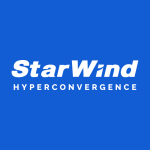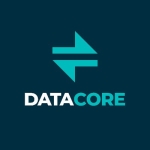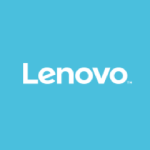Valuable Features:
The main thing is the comprehensive data center management type of features. The overall management dashboard, capability to have multiple clusters, link clones, distributed computing, where you have vCenters in different geographies. Site Recovery Manager for failover, VSAN for storage, and again the EVO:RAIL mechanism combining with the type of VSAN architecture that is out there, and previously, the automation capabilities of vCloud Automation Center. Previously, I had experience with vCloud Director, but obviously everything's being transported onto vCloud Automation Center now.
Improvements to My Organization:
The biggest benefit is cost, so for someone looking to deploy low cost storage, but something that integrates with their virtualization architecture. It's a very good fit for smaller companies who have multiple nodes, and can leverage commodity hardware to go with that. VSAN, by its architecture itself, has inbuilt features for reliability, for load balancing. You could enable VCRE cache, along with VSAN, so it works and integrates with a lot of other VMware technologies.
Room for Improvement:
I would love to see VSAN transform into an EVO:RAIL-type of technology, but EVO:RAIL has a separate use-case. I think it's not meant for all companies either. VSAN does serve that purpose, and kind of addresses the primary need there. At the same time, EVO:RAIL is limited to certain hardware manufacturers and some providers who are kind of combining everything into one package and selling it off. Whereas, customers like to use commodity hardware, like to use regular software, and do things their own way. So, if VSAN continues to offer that flexibility, which it does today, I think there's great significance for it. If it integrates with replication and SRM, that takes it in a really good fashion, right to the area where it can be heavily adopted.
Use of Solution:
I have experience, personally, as a VMUG leader and as a vExpert in the areas of vSphere 6, SRM, I've tested VSAN in my home lab. I have worked with replication technologies. Done a little bit of vCloud Automation Center as well, and vCloud director.
Stability Issues:
I personally consider VSAN to be a very stable product. Obviously you have to have a minimum of four nodes, to say that, the minimum spec is for three nodes, but if you have 4 nodes or higher for VSAN, it is a very stable product.
Scalability Issues:
It's all about adding nodes, and the number of drives to it. VSAN is very scalable. I was able to, just for a lab purpose, scale it up to 10 terabytes, and I started off at four, so it tells you that it was easier to scale from 4 to 10 terabytes, and the same mechanisms I've read online reviews and some white papers around it, it goes up to quite a few hundred terabytes.
Initial Setup:
Very straightforward, you need to obviously follow the configuration guide, read advance, just so that you understand the components around VSAN. Then it was just a matter of enabling VSAN, provisioning all the data storage that it needs. You obviously need to have a Solid State Drive to go with it, so many people don't realize that, but you should have one. That is to allow the performance that is required from commodity hardware to be scaled up.
Other Advice:
For our VMUG group, I was trying to set up a lab, and I tried to go with the VSAN for storage purposes. It's a very rock solid product, very robust. Compared to the previous iterations it is very flexible and very strong now. It was a breeze to set up, it didn't take time. The reliability of VSAN is really good, I was able to set it up at four nodes and I purposely took out one node just to see what happens, and it just kept working fine.
Looking at VSAN or a different solution, it depends on the use-case really. Someone looking for Oracle database set up on ASN, is not going to first think of VSAN, but, if you design VSAN the right way, it can host Oracle databases. It's just a matter of how much compute you throw at it, how much storage power you throw at it, and how you design the pool. If you have done things the right way and you have sufficient cache, and you have sufficient Solid State, I think it can be a really good use-case for many different organizations.
It offers a lot of scalability to customers. People looking to scale up in terms of nodes when they need it, it's a perfect fit for it.
Disclosure: I am a real user, and this review is based on my own experience and opinions.














